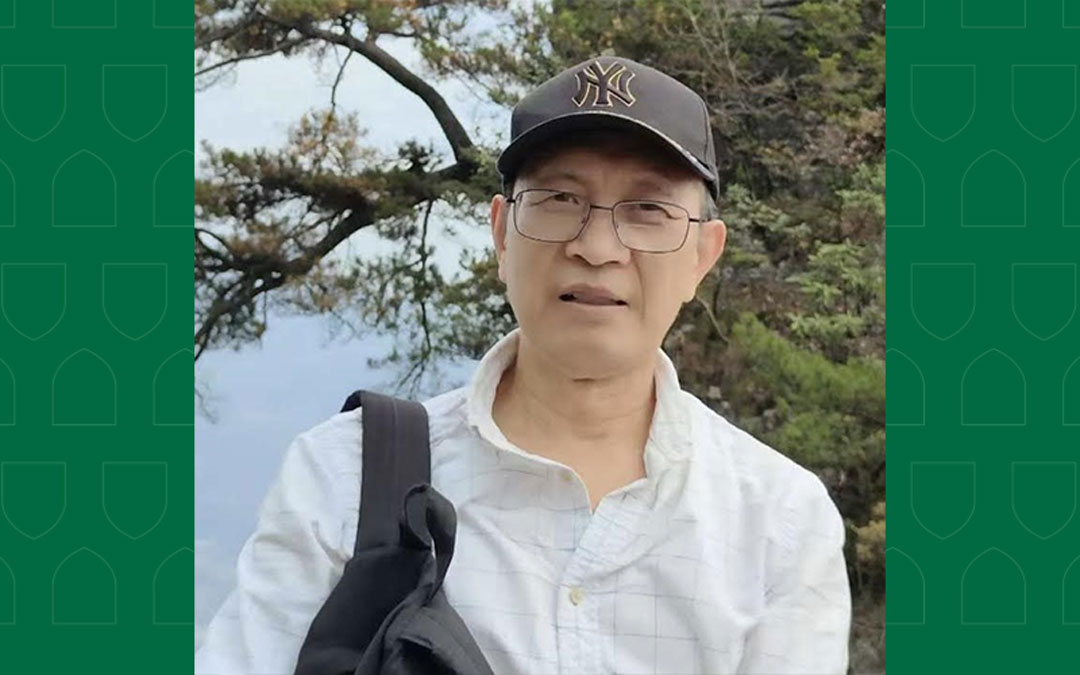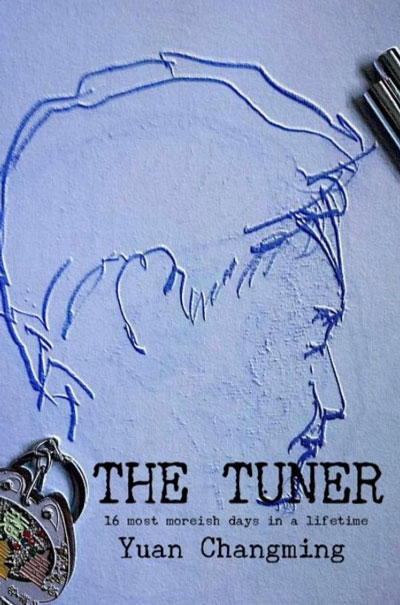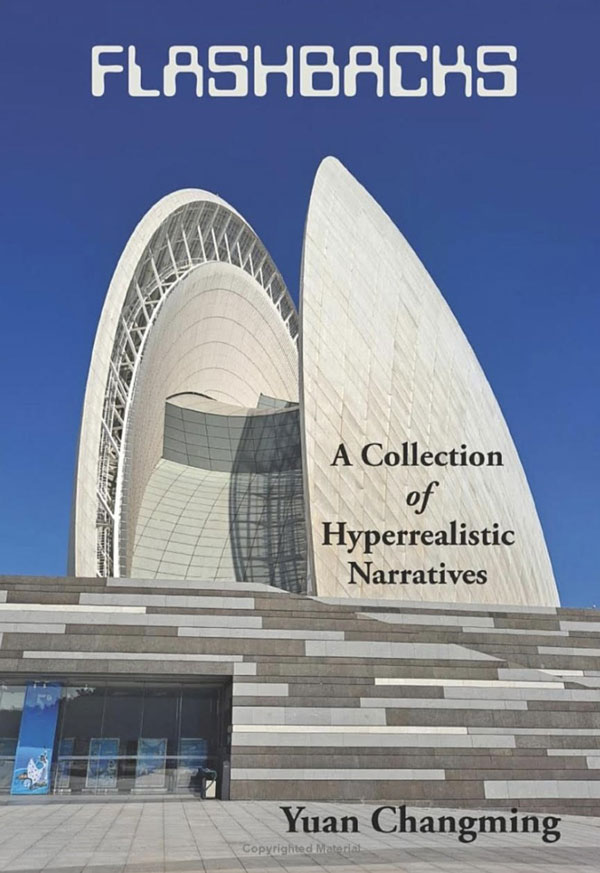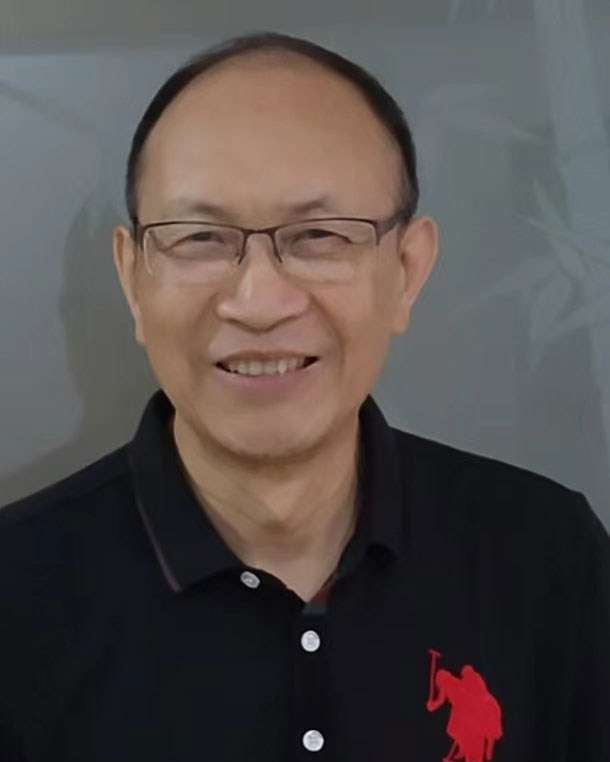
‘Writing makes my life meaningful’
Alumnus Dr. Yuan Changming (MA’92, PhD’96), who studied English at the University of Saskatchewan, is an award-winning poet, writer, editor, publisher, tutor, and translator
By SHANNON BOKLASCHUKDr. Yuan Changming (MA’92, PhD’96) is grateful for the outstanding education he received at the University of Saskatchewan (USask) as a graduate student in the Department of English in the 1990s. His positive experiences at USask inspired him to donate to his alma mater after graduation, working with the College of Arts and Science to establish an annual award open to English majors who have written a Canadian literature essay for a USask English class.
“Before getting into USask’s graduate program in English, I had no idea about what a term or research paper was, nor had I ever written anything in English besides filling in certain application forms; however, my USask education equipped me with all the knowledge, as well as basic writing and editing skills, I needed to become an independent tutor, translator, writer, editor, and publisher,” he said.
“To show my gratitude to my alma mater, I’ve committed myself to a 20-year-long contribution plan for the Yuans Award in Canadian Literature, which I set up in 2015.”
Before relocating to Canada and studying at USask, Changming grew up in an isolated village in China. He began to learn the English alphabet in Shanghai at the age of 19. After earning his Master of Arts and PhD degrees in English at USask in 1992 and 1996, respectively, he moved to Vancouver, B.C. He continues to live and write in Vancouver, where he has co-founded an online literary publication, Poetry Pacific, with his son, Allen Yuan.

Over the years, Changming has earned multiple international poetry prizes, including 12 Pushcart nominations for poetry and three for fiction. He has been included in Best Canadian Poetry (2009, 2012, 2014) and the Best of the Best Canadian Poetry (2008-17) as well as in literary publications across 51 countries. In 2021, he served as a juror for Canada’s 44th National Magazine Awards (poetry category) and earlier this year he released two new books: The Tuner: 16 most moreish days in a lifetime and Flashbacks: a collection of hyperrealisitic narratives.
While Changming has been the recipient of numerous awards, he doesn’t write with the goals of winning accolades or earning money; rather, he enjoys the process of writing and sees the “intrinsic value” of his creations. Ultimately, his “primary concern is never playing to the gallery,” he said.
“Ten years after I received my doctorate, I wrote a maxim for myself which was later showcased in The London Magazine: ‘Like a silkworm, I contribute my best to the world; if people don’t care, why should I?’ Now I care no less about how much attention I can get as an author; however, I am happy to have realized this: writing makes my life meaningful,” he said. “I write, therefore, I am, so to speak. For me, it’s always more important to write my ‘bests’ into my books than to win a few readers or loonies.”
One of Changming’s newest books is The Tuner: 16 most moreish days in a lifetime, which was released on Feb. 6, 2025, by Alien Buddha Press. The work of fiction was inspired by Changming’s first crush and is what he describes as a “silver romance,” highlighting the joys of romantic love between older adults.
“I write this type of book not to cash in on ‘romance’ as a trendy literary genre or even to entertain my fellow boomers, but to encourage people to rethink about their relationships, marriages, and lives as well,” he said.

Changming has described his other new book, Flashbacks: a collection of hyperrealisitic narratives, as a collection of short stories that focus on “how the narrator grows from a village boy in an isolated Chinese village to a first-generation immigrant trying to achieve his ‘Canadian dream.’ ” The book was released on Feb. 7, 2025, by Goldfish Press Seattle.
“Most of the stories are based on my personal observations or autobiographical experiences. By weaving into the fabric of these stories those I have gone through or witnessed in real life, I gave a meaning to my past life,” he said. “For me, to write about my past means to follow Socrates’ advice about examining my life and finding its worth, if any at all. I hope that my stories as a first-generation immigrant from post-Mao China could shed some light on the pursuit of the ‘Canadian dream. ’ ”
The Green&White recently asked Changming about why he chose to study at USask, what inspires him to write, and his advice for other USask alumni who may want to pursue a literary career.
You earned both a Master of Arts degree and a PhD in English at the University of Saskatchewan. Why did you choose USask for your graduate studies?
Frankly speaking, I chose USask over all the other universities that had accepted me as a graduate student simply because of its most generous scholarship, without which I could never have obtained my student visa back in the 1980s when almost everyone in China was living in poverty.
What did you enjoy about studying at USask?
Besides reading Keats and romantic poetry for my thesis work, I enjoyed working part time as the founding editor of Saskatchewan Chinese Monthly, the first newspaper I helped to establish for the Chinese community in the province.

You are the author of 16 books of poetry and three works of prose. What inspires your work?
While attending high school in a small town in central China, I aspired to become a poet-swordsman like Li Bai. After writing many poems in my mother tongue and making a dozen submissions, I decided to give up this dream as a result of the fact that I never received even a standard rejection slip, much less a written letter with some feedback. It was during my first family tour to Banff in August 2004 that I began to write poetry again, this time in English, inspired by my lonely hiking experience. About half a year later, I had my first poem featured in an American magazine at age 48 and, since then, I have kept writing poetry by drawing on my reading, meditating, and observing experiences.
You have been described as “probably the world’s most widely published contemporary poetry author who speaks Mandarin but writes in English.” What is it like to write in an additional language?
Though I prefer to speak Mandarin Chinese, I use English as my chosen language for literary creations, just as I live in Canada as my chosen country. To me, English is a more expressive language when it comes to writing. On the one hand, it is the language in which I wrote my first published poem and thus felt more ‘at home’; on the other, writing in a second language—which I did not begin to learn until after I turned 19—has always been more challenging and more intriguing. By writing and publishing more love poems in English than any author I know of, especially by inventing what I call “bilinguacultural” poems, I get a strong sense of self-fulfillment, which is as important to me as meaning in life.
What are some of the upcoming literary projects that you will be working on this year?
Since I returned from my most recent China trip last November, I have written and finalized a 42,000-word-long literary nonfiction, titled Return to Roots, in which I intend to afford insights into some of the most “Chinese” cultural traditions and national personalities. In addition, I have completed drafting a 60,000-word-long novel. While half of the 20 personal essays included in my Return to Roots have already been accepted individually for publication in print or online, I am currently looking for a good home to (publish) my manuscript as a whole. As for the novel, tentatively titled TOWARDS, I will keep revising and polishing it in the coming years until I feel really satisfied. Being my last and most ambitious prose work, this cultural-philosophical novel is thematically concerned with the quest for Dao (the Way) through an alternative lifestyle, or a simple but happy mode of existence based on the Daoist principle about the harmony between man and nature.
What is your advice for other USask alumni who may want to follow in your footsteps and explore a writing career?
As I mentioned in one of my poems, (creative) writing empowers us to play the god by re-creating man and the world; to release all the intensities of our emotions, good or bad; to elope to a glade for the joyful privacy of our souls and bodies; to experience the flow of the heart; to function in an ideal realm; to indulge in the game with words and thoughts; to give our lives a meaning or significance; to sublimate our animal whims; and last, but not least, to fill in each and every blank left over from our teenager dreams. Succinctly put, writing is perhaps the most meaningful way to cultivate old age. It’s a most enjoyable thing to do after retirement, as long as we don’t care about how much attention or money we can receive from it.
Is there anything else that you would like to add?
Just one thing to mention: Writing makes us happy, healthy, and wise. Please feel more than welcome to send your poetry and artworks for possible publication in our Poetry Pacific, which I co-founded with my poet son in Vancouver on the Remembrance Day of 2012.
Article re-posted on .
View original article.

